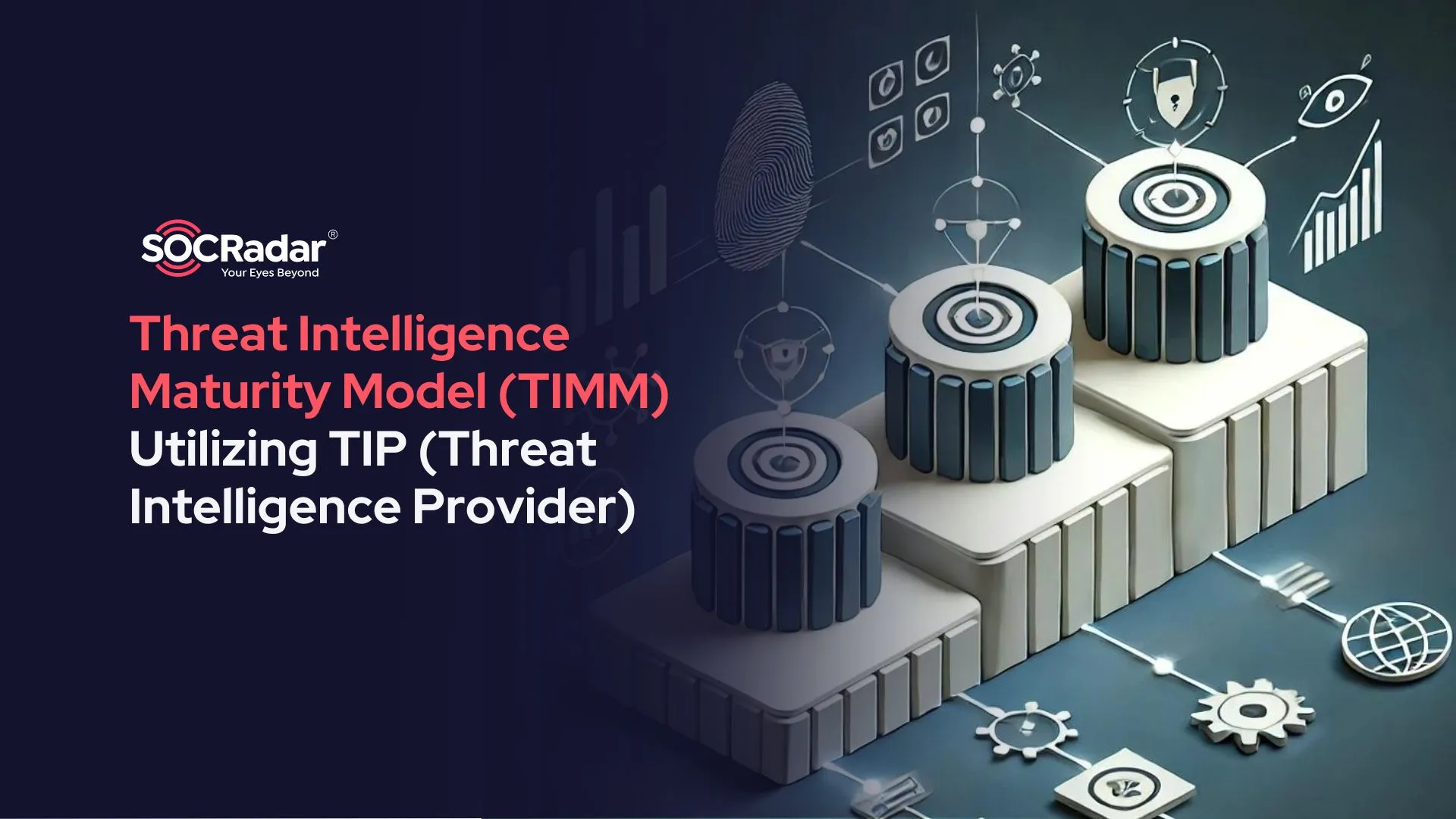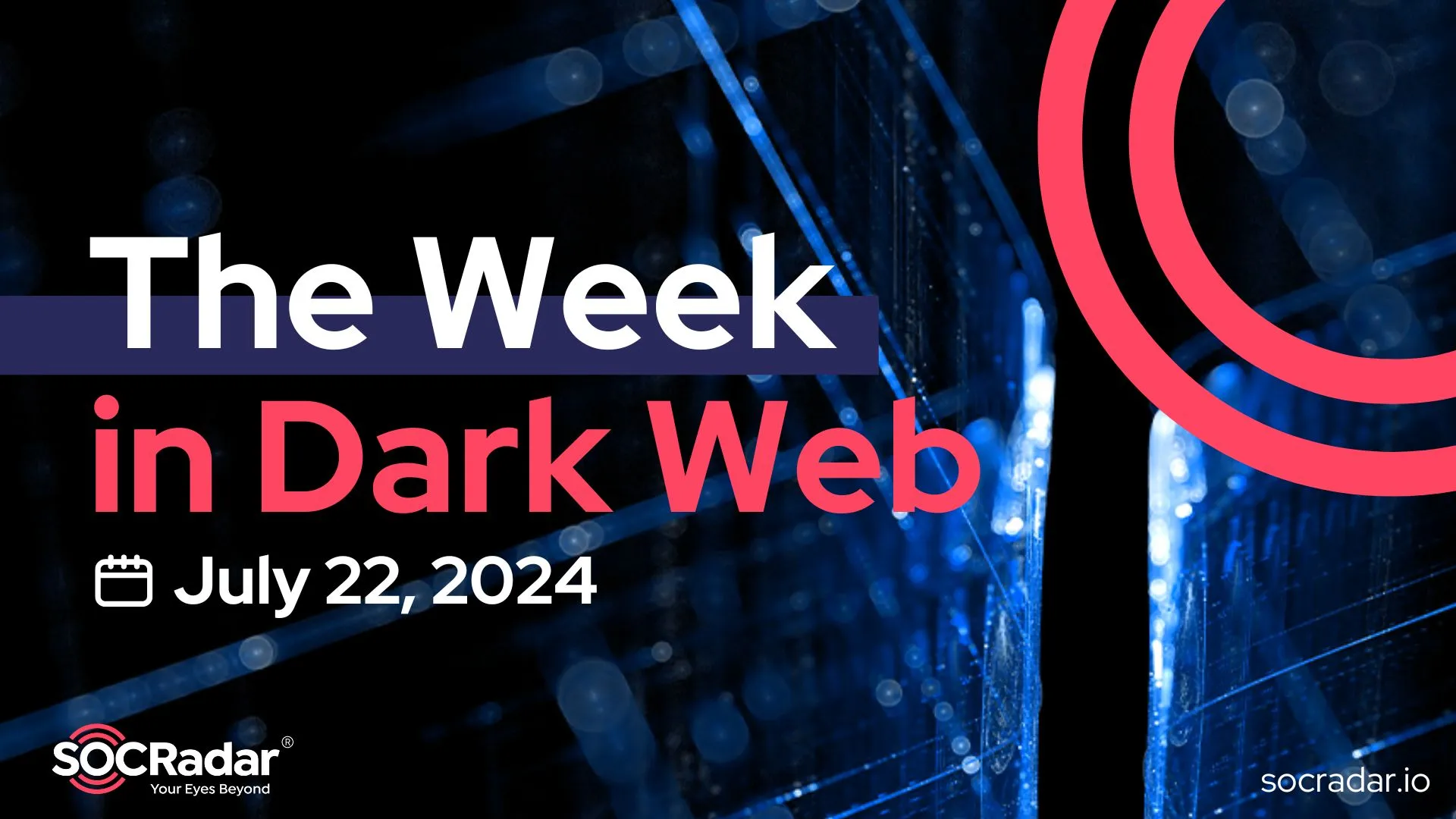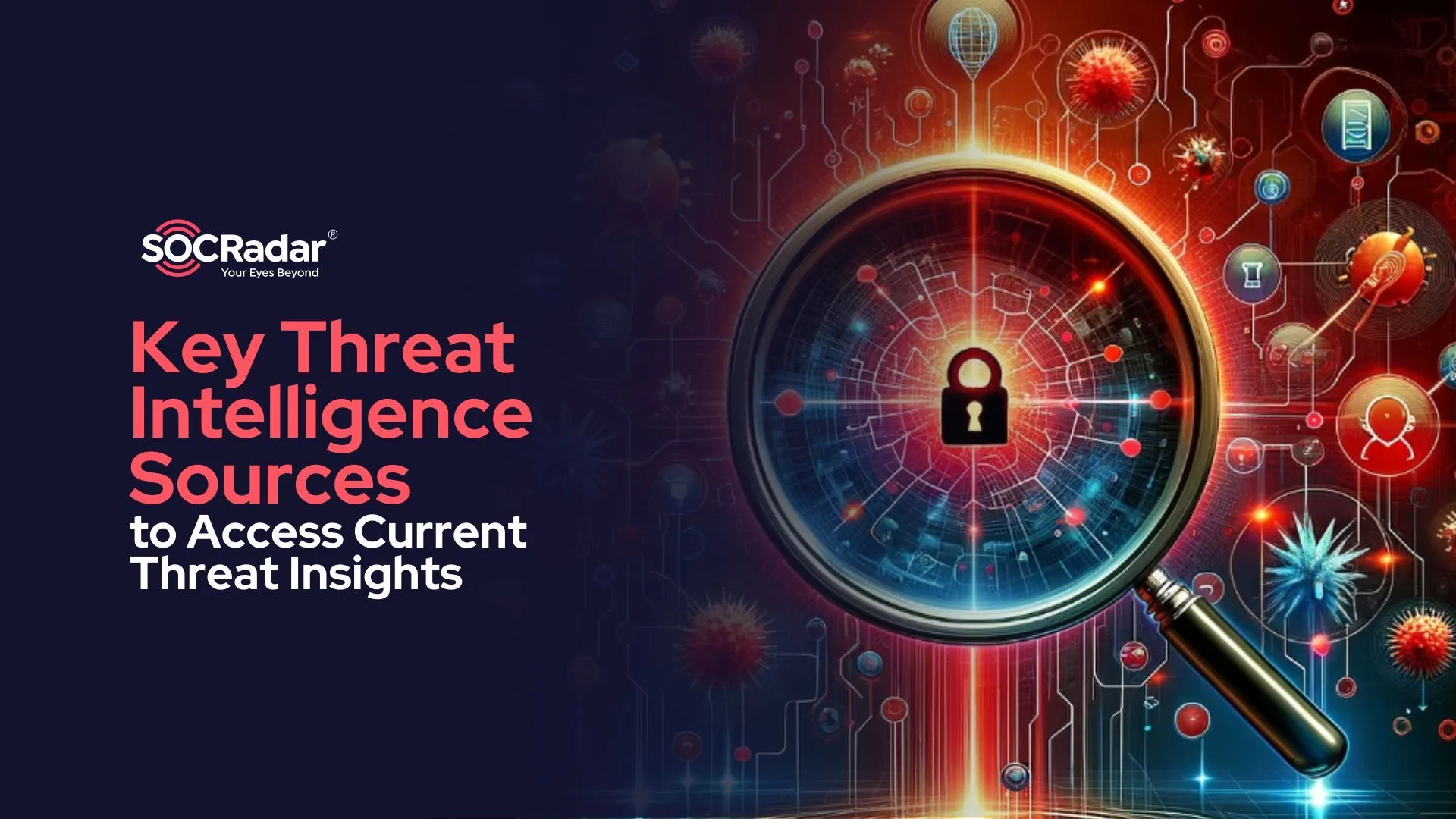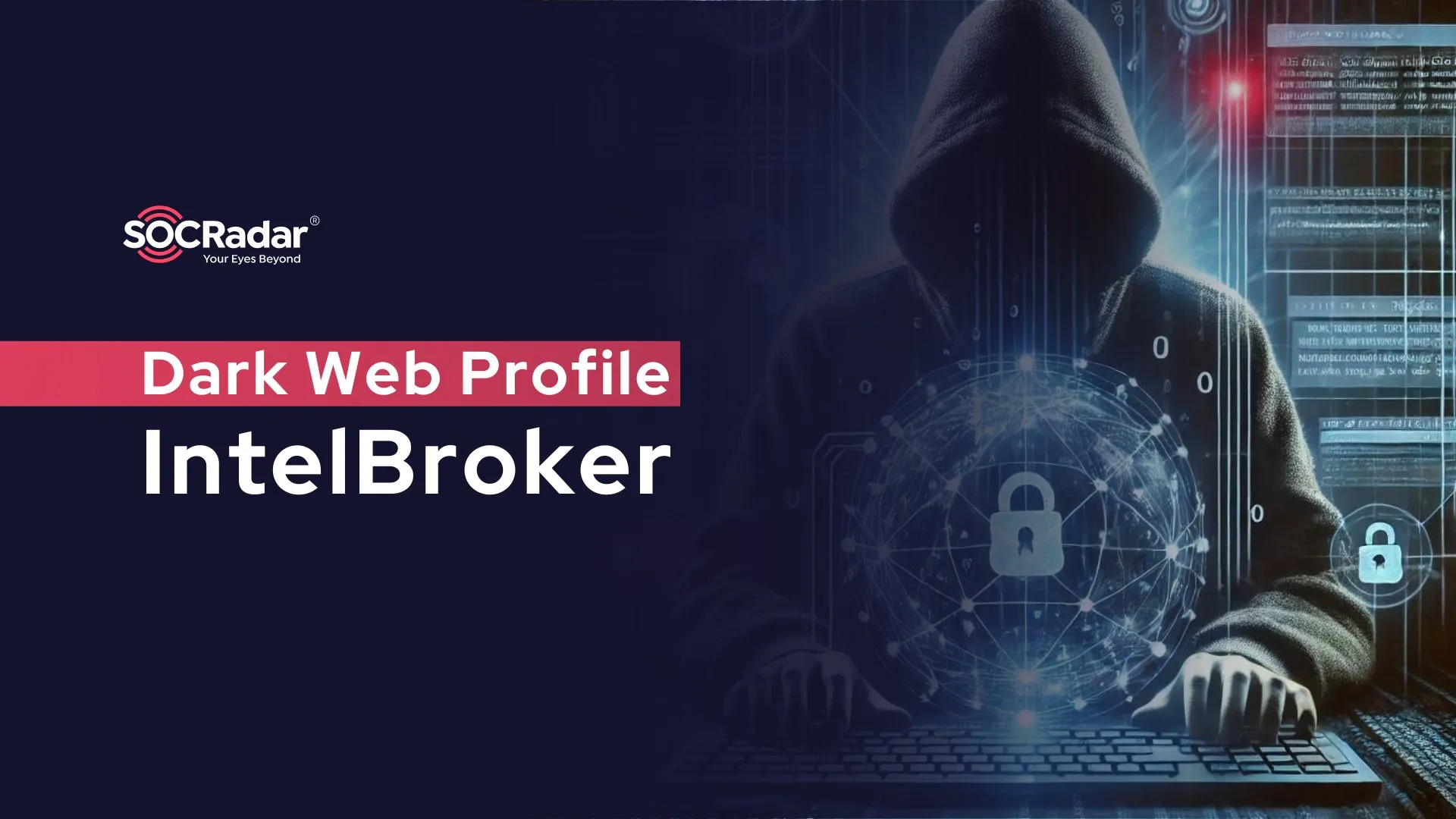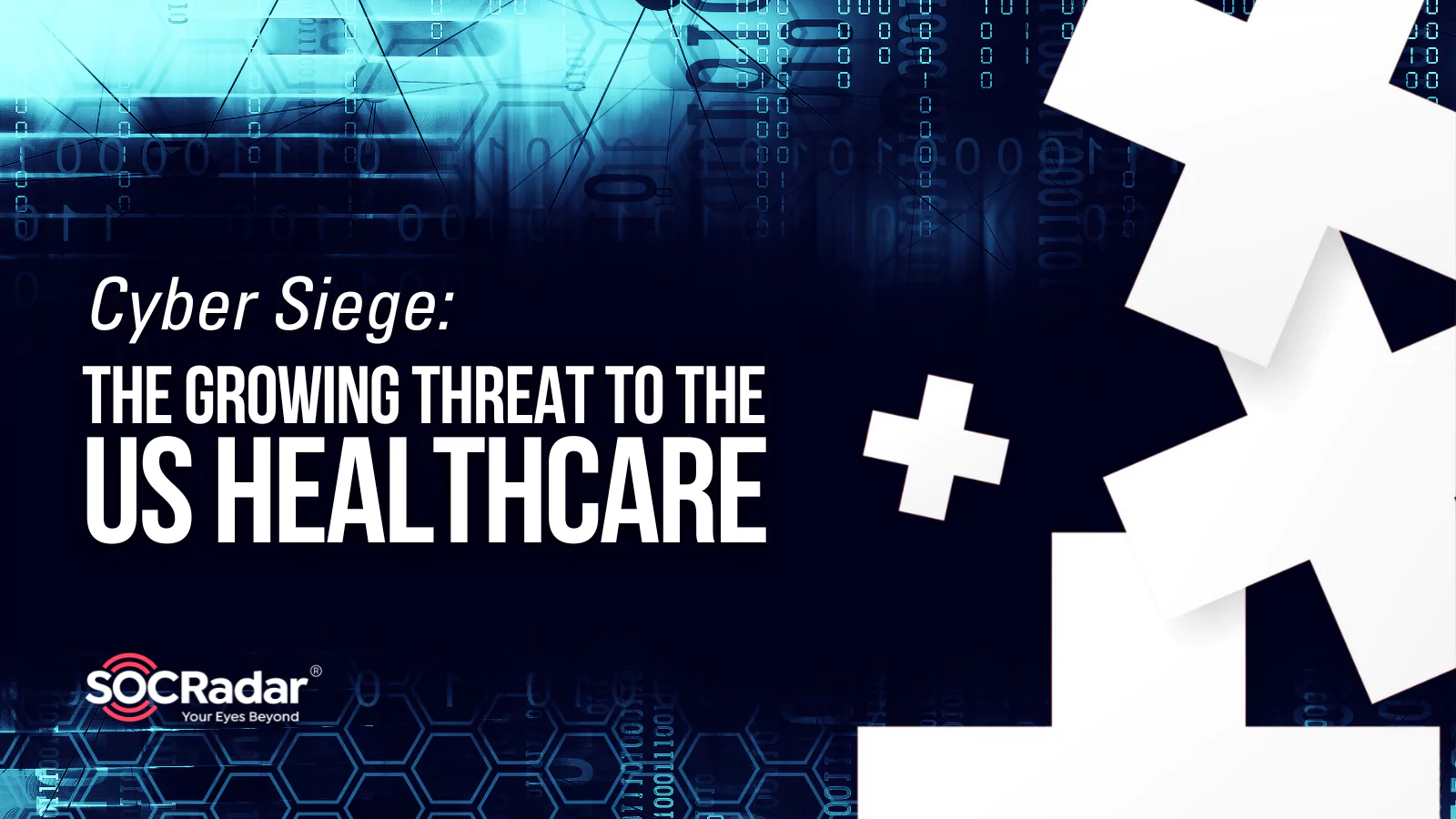
Cyber Siege: The Growing Threat to the US Healthcare
Last week, the US healthcare sector faced a surge in cyber attacks, marking a troubling start to the year. This wave of incidents, from data breaches to ransomware attacks, exposed the vulnerability of healthcare institutions and the sensitive data they safeguard.
Capital Health, Diablo Valley Oncology, HCA Healthcare, and Bradford Health Care, were targeted, or related incidents have resurfaced in the Dark Web, highlighting these threats’ widespread and varied nature.
Recent Cyber Attacks on US Healthcare Facilities
Capital Health (January 7, 2024): The LockBit ransomware group targeted Capital Health, stealing confidential patient data without deploying ransomware. This approach of data theft without operational disruption demonstrates their supposed sensitivity to critical data and patients, but not enough to prevent them from stealing the data.
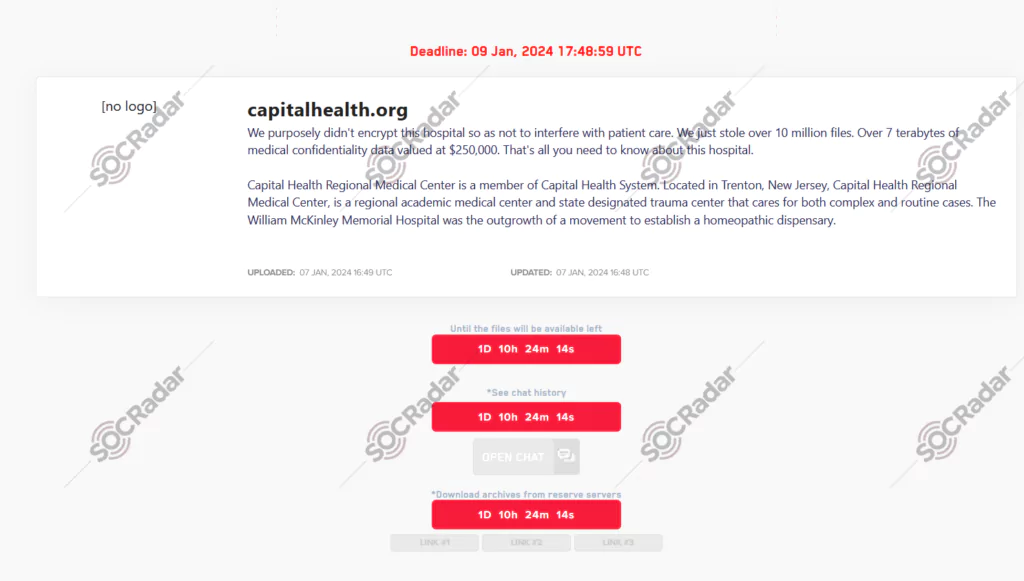
Announcement of LockBit
Diablo Valley Oncology (January 4, 2024): The Monti ransomware group claimed to have stolen over 30 GB of personal information from Diablo Valley Oncology. Their threat to publish this sensitive data highlighted the growing risks of data breaches in the healthcare sector.
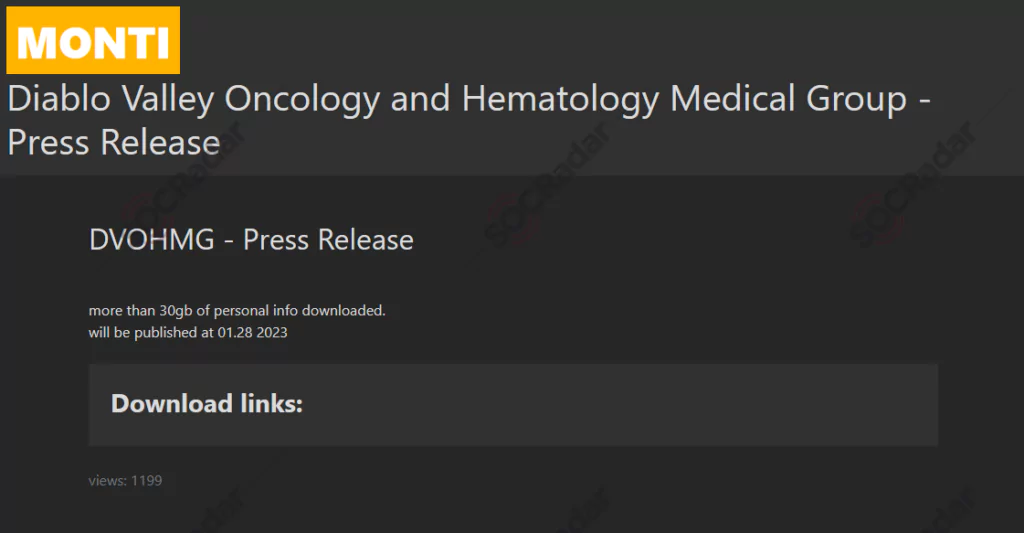
Announcement of Monti
Bradford Health Care (January 3, 2024): Bradford Health faced an attack by Hunters International, leading to an operations blackout and data leak. This incident demonstrated the evolving nature of cyber threats, with newer groups like Hunters International emerging in the cybercrime landscape.
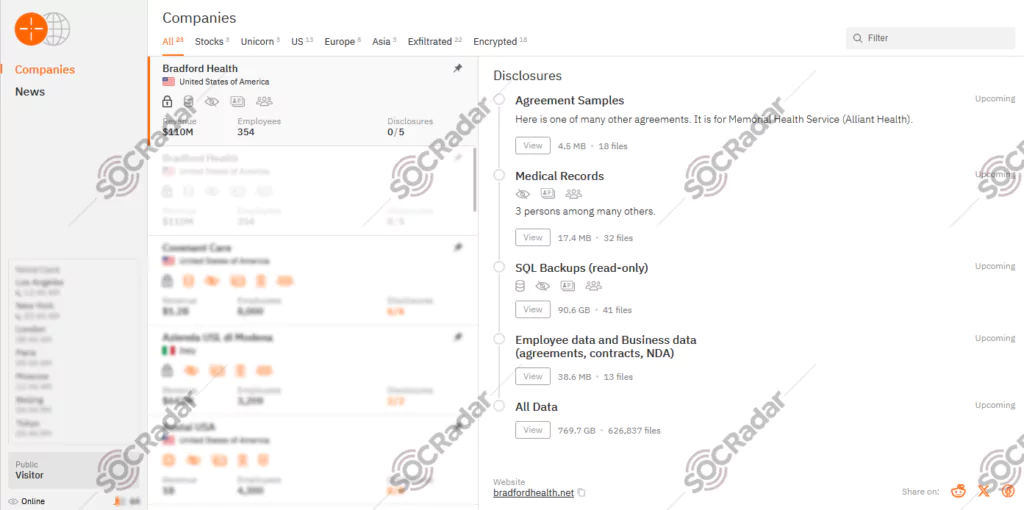
Announcement of Hunters International
HCA Healthcare Data Resurfaced (January 2, 2024): In one of the most significant healthcare breaches in July 2023, HCA Healthcare suffered a hack affecting the data of 11 million patients. The breach included patient names, contact information, and appointment details, underscoring the massive scale of potential patient data exposure. This data has been detected on the Dark Web before, but it continues to be published again recently.

Hacker forum post about HCA Healthcare
Implications and the Future
These cyber-attacks on US healthcare facilities have far-reaching implications. Firstly, they pose a significant risk to patients’ privacy, as sensitive personal and medical data might be exposed. Secondly, these breaches might disrupt healthcare operations, affecting patient care and trust in healthcare providers. The ethical concerns of targeting healthcare, a sector critical to public health and safety, are also profound.
Looking at the worsening situation, ALPHV, a known ransomware group, remained active in 2024 despite law enforcement’s efforts. They even revoked their own rules and effectively threatened to attack more sensitive sectors. LockBit, another group, chose not to encrypt stolen data from a healthcare provider. Still, an attack from another ransomware group might lead to more severe consequences like ALPHV, which is now more aggressive and could target healthcare.
Cybersecurity Challenges in Healthcare
The healthcare sector faces unique cybersecurity challenges. Healthcare data, rich in personal and sensitive information, is a lucrative target for cybercriminals. The sector’s increasing reliance on technology, alongside legacy systems, creates a sensitive attack surface. Additionally, the urgency and importance of healthcare services could make these institutions more likely to pay ransoms, inadvertently encouraging more attacks.
In response to these cyber attacks, healthcare facilities should take various measures. Immediate actions include containment measures, forensic investigations, and collaboration with law enforcement and security professionals. However, prevention is the ultimate key. Implementing Multi-Factor Authentication (MFA), conducting regular security audits, training staff in cybersecurity awareness, and developing a robust incident response plan are critical. Additionally, healthcare providers should invest in advanced cybersecurity infrastructure and seek partnerships with cybersecurity experts. This proactive approach is vital to safeguard against future cyber threats and ensure the security and privacy of patient data.
Conclusion
These incidents clearly highlight the urgent need for enhanced cybersecurity measures to protect sensitive patient data. As the healthcare industry continues integrating technology into its operations, it becomes increasingly crucial to prioritize cybersecurity. This involves proactive technological solutions and a culture of security awareness among healthcare professionals.
Balancing patient care with cybersecurity is challenging, but it is essential for the safety and trust of the healthcare system. So, the events of the first week of 2024 are a call to action for heightened vigilance and proactive defense strategies in healthcare cybersecurity.
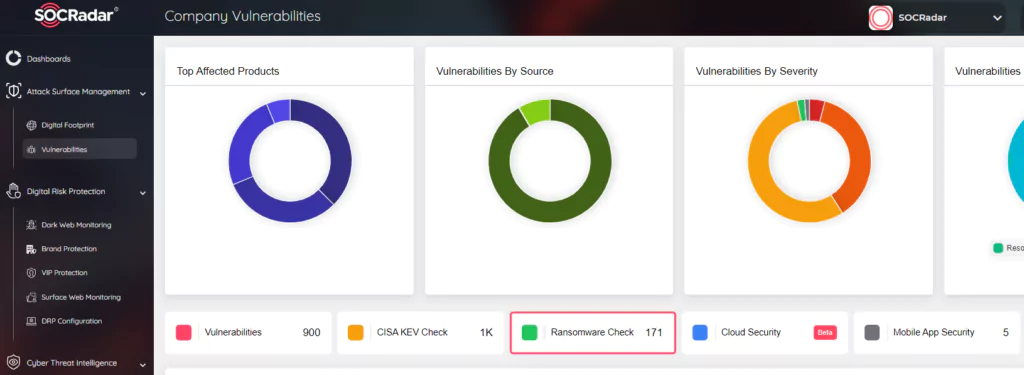
SOCRadar Attack Surface Management, also offers a Ransomware Check feature
The capabilities of SOCRadar Platform could be a key solution to the need for proactive security. It offers enhanced visibility into an organization’s digital footprint, identifying vulnerabilities before they can be exploited. Utilizing such proactive tools is essential for healthcare providers to stay ahead of cybercriminals and safeguard sensitive patient data. In a digital age where threats are ever-evolving, robust and advanced cybersecurity measures like those offered by SOCRadar are not just beneficial; they are necessary.































